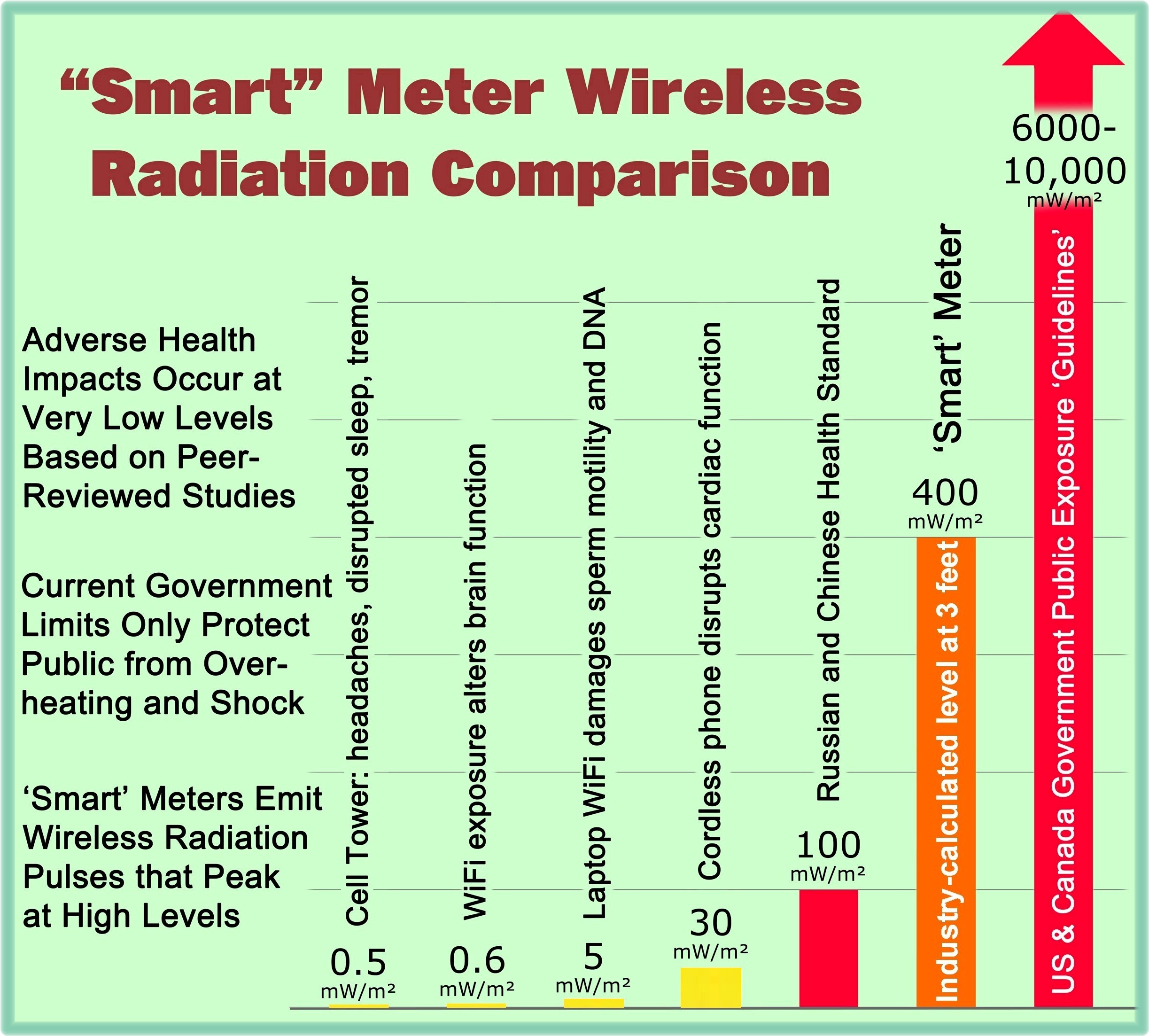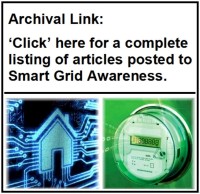 SmartGridNews.com published an article today entitled, “How to attack a smart meter (Utilities: better find out before the criminals do).” The SmartGridNews website is generally considered a propaganda mouthpiece for the smart grid industry, but lately, I am beginning to wonder. Here are some excerpts from the new article:
SmartGridNews.com published an article today entitled, “How to attack a smart meter (Utilities: better find out before the criminals do).” The SmartGridNews website is generally considered a propaganda mouthpiece for the smart grid industry, but lately, I am beginning to wonder. Here are some excerpts from the new article:
“[W]hat could happen if a smart meter is compromised? Similarly, what are the problems that could result if the connectivity of a smart meter is disrupted? Let us see.
Meter Tampering.
Perhaps the most obvious risk is simple: meter tampering. If a smart meter can be hacked, inaccurate information can be sent back to the utility, allowing an attacker to adjust the reading and resulting in an inflated bill. Let’s say, for example, that you have an argument with your neighbor. In revenge, if he can access your smart meter, you might see a rather large electric bill. …
A ‘please rob me’ sign.
… Power savings are frequently promoted as a benefit of smart meters. However, power consumption is also a good way of checking if someone is in a home or not.
Let’s say that a vulnerability made it easy for somebody other than the homeowner or the utility to see what the power usage was. (It could be as easy as a poorly-designed API, mobile app, or website.) The smart meter would then essentially become a giant ‘please rob me’ sign for properly equipped thieves.”

“Extortion.
Alternately, if that smart meter can be controlled remotely, you now have an excellent way to carry out extortion. Such a nice house you have there, it’d be shame if anything bad happened to its power. ….” [emphasis added]
Also referenced in the article is a video (shown below) called “The Risk of Adopting a Smarter Energy Future.” The video is pro-industry but yet acknowledges the risks.
It is a shame that smart grid advocates don’t wake up and realize the costs and risks associated with smart meters far outweigh any mythical benefits. At least some of them are beginning to acknowledge the risks. That is progress I suppose.
.
Updated Entry
It is noted that SmartGridNews.com at some point removed portions of its original article mentioning “a please rob me sign” and “extortion.” They must have gotten complaints from the “industry.” The article or what remains of it is located at:
http://www.smartgridnews.com/story/how-attack-smart-meter-utilities-better-find-out-criminals-do/2014-08-04.
The SmartGridNews.com article, however, was essentially a shortened, adapted version of a more comprehensive article at TrendMicro, entitled, “Smart Meter Attack Scenarios,” at:
http://blog.trendmicro.com/trendlabs-security-intelligence/smart-meter-attack-scenarios/.
At the TrendMicro site you can see the following statements:
“Perhaps the most obvious risk is simple: meter tampering. If a smart meter can be hacked, inaccurate information can be sent back to the utility, allowing an attacker to adjust the reading and resulting in an inflated bill. Let’s say, for example, that you have an argument with your neighbor. In revenge, if he can access your smart meter, you might see a rather large electric bill.”
“Let’s say that a vulnerability made it easy for somebody other than the homeowner or the utility to see what the power usage was. (It could be as easy as a poorly-designed API, mobile app, or website.) The smart meter would then essentially become a giant “please rob me” sign for properly equipped thieves.”
“Alternately, if that smart meter can be controlled remotely, you now have an excellent way to carry out extortion. Such a nice house you have there, it’d be shame if anything bad happened to its power…”
Archival Reference for the TrendMicro article: http://web.archive.org/web/20150909031031/http://blog.trendmicro.com/trendlabs-security-intelligence/smart-meter-attack-scenarios/





Great post! No hackable wireless surveillance/spy device on my home yet. But it hasn’t been easy! Have had to chase Corix installers off my property more than once in the last 3 years. Here in BC, those of us who have hung on to our analogs must now pay an additional $32.50 per month extortion fee to BC Hydro for choosing to keep a Class 2B carcinogen off our homes.